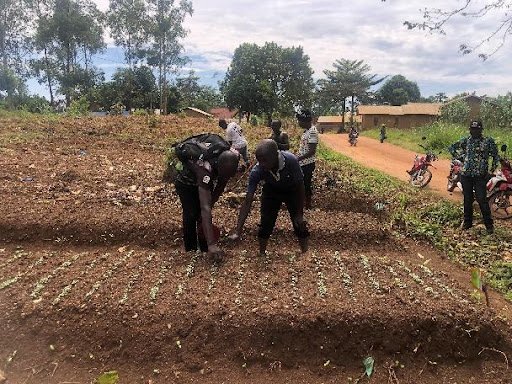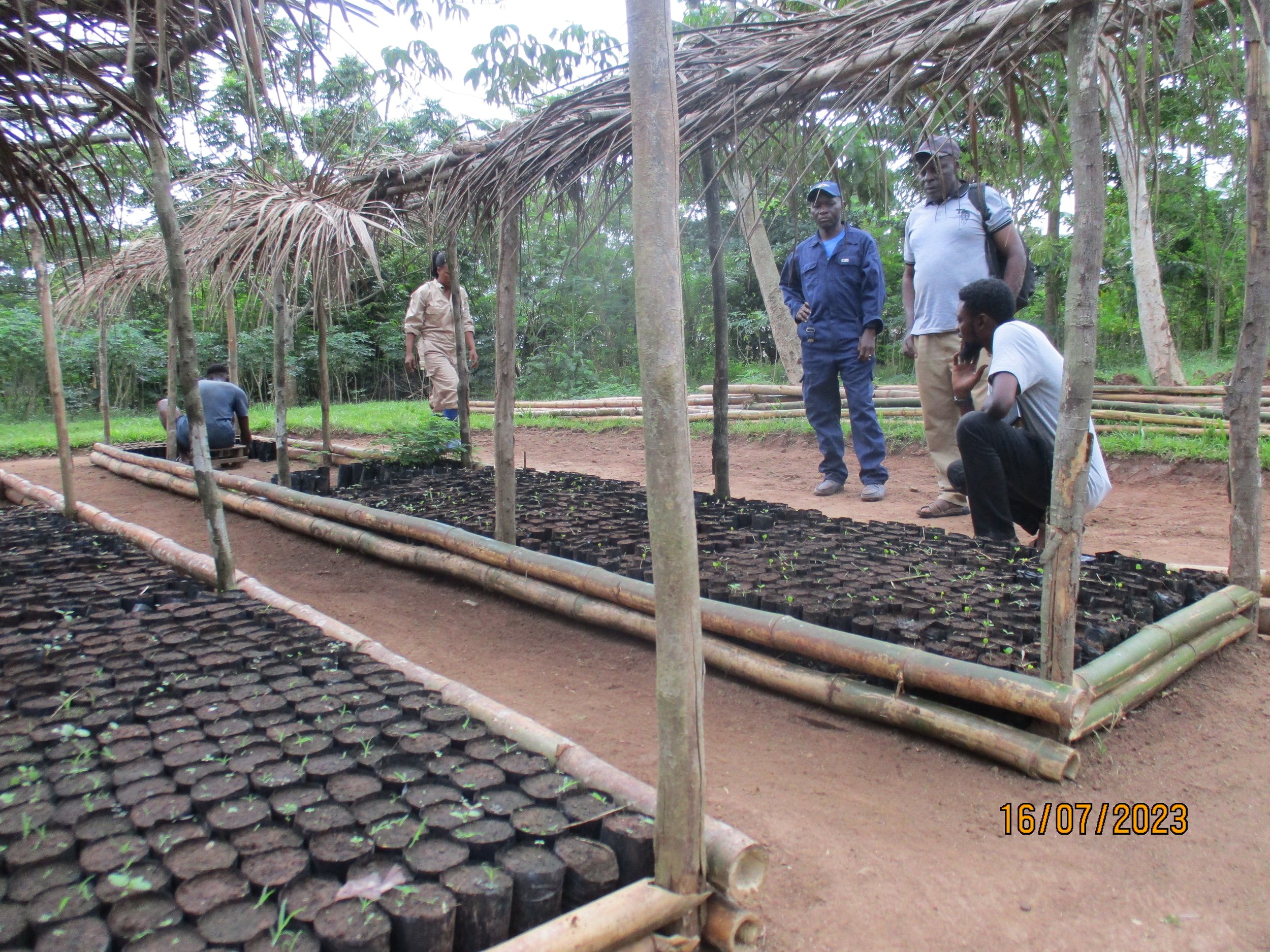Nearing our Goal of 100,000 Tree Seedlings!
The main threat to the rainforest habitat of okapi is slash-and-burn agriculture. Though often conducted on a small scale, the combined actions of people participating in the practice can impact large swaths of forest.
Slash-and-burn agriculture is an unsustainable practice that quickly depletes the soil of nutrients, requiring farmers to continue the practice year after year, going deeper into the forest and further away from their homes in search of arable land.
Our agroforestry program builds the capacity of participating farmers with techniques to lengthen the life of their soil so they can stay on the same plot of land for several years, allowing them to stay closer to their homes and avoid cutting trees deeper into the forest.
Rice paddy in Wamba
In the third quarter of 2023, we distributed more than 32,000 tree seedlings to over 960 farmers, including Nitrogen-fixing trees, fruit and nut trees as a food source, and several primary forest trees to reforest abandoned plots of land. Another element of our agroforestry program is supporting communities in establishing sustainable gardens. This quarter, OCP was approached by Mambasa prison management seeking support for inmates to create and maintain their own vegetable gardens, enhancing diet diversity. This is a testament to OCP’s trust with local communities in addressing food security and supporting sustainable practices.
Sprouting cabbage seeds at the inmates’ garden in Mambasa
Germinating tree seeds for eventual distribution
If you remember our 2022 end of year fundraising campaign, we raised just over $100,000 to plant 100,000 trees in 2023. We are happy to report we have planted nearly 87,000 trees! We expect to reach our final goal of 100,000 trees by the end of November. This achievement is a mutual effort by you, our supporters, and our incredibly talented, creative and resilient agroforestry staff led by Muvi Yalala.
Thank you for being an integral part in safeguarding the future of okapi.
Loading tree seedlings for distribution to farmers




